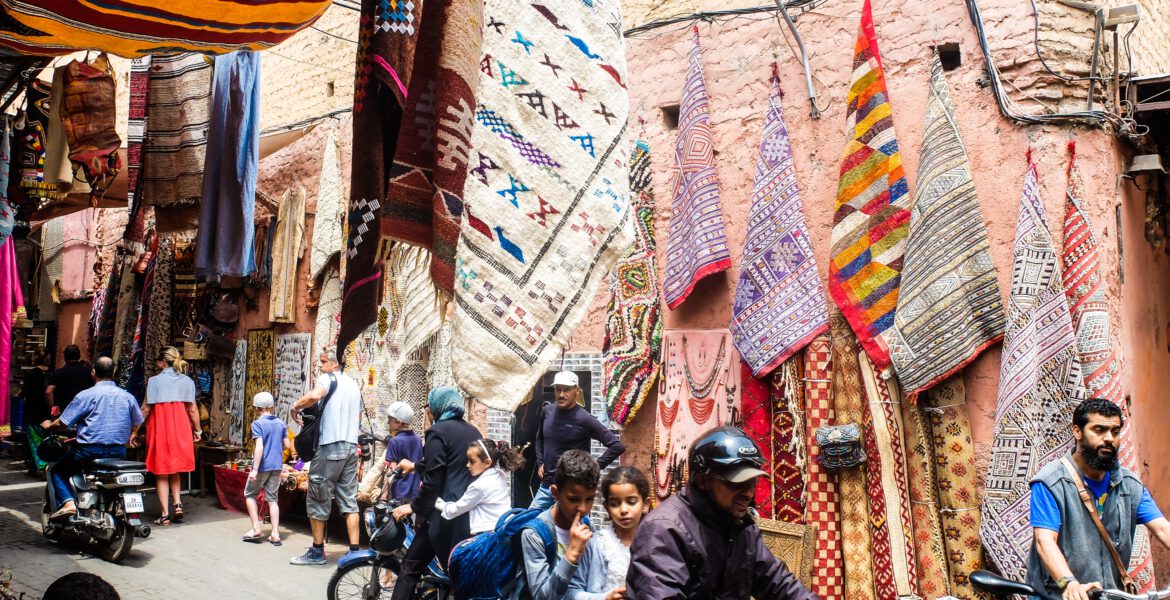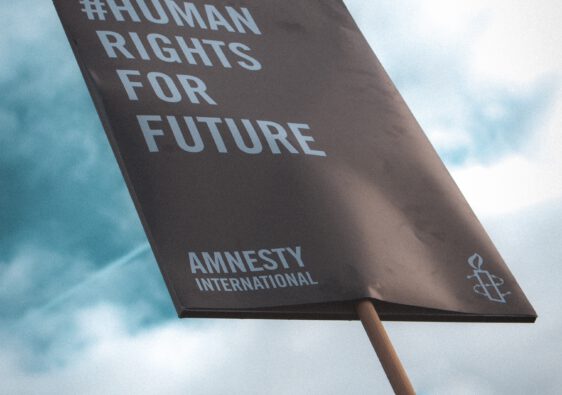In the hustle and bustle of Morocco’s modern landscape, there’s a call to arms, a clarion call for a more informed and engaged citizenry.
As we navigate the intricate web of the 21st century, it’s increasingly evident that arming our youth with the tools for active civic participation is not just a choice; it’s a necessity for our nation’s advancement.
Civic education stands at the crossroads of Morocco’s future, not merely as a duty but as a means to empower citizens to translate their aspirations into tangible actions for the betterment of our communities and our beloved nation. Yet, in an era where screens and social media vie for our attention, we must address the illusion that virtual interactions alone constitute genuine civic involvement.
The Moroccan Challenge: Hollow Civic Engagement
One of the pressing challenges facing Morocco today is the rise of “empty” civic engagement. In a world where social media reigns supreme, it’s far too easy for Moroccans to confuse online activities with meaningful civic participation. Likes, shares, and comments on political posts or digital rallies can give the impression of making a difference. Regrettably, these actions often remain confined to the digital realm, failing to impact the issues that resonate within our nation.
We must recognize that authentic civic engagement in Morocco transcends the boundaries of the virtual world. True engagement encompasses real-world actions, such as volunteering, community organizing, active participation in local governance, and the pursuit of substantive efforts to address Morocco’s unique challenges. Civic education emerges as the beacon guiding Moroccan students to distinguish between performative online involvement and authentic, impactful engagement.
Morocco’s Virtual Activism Mirage
In an age dominated by screens and social media, the lines between virtual activism and tangible contributions to Moroccan communities have blurred. The allure of online platforms often leads Moroccans to believe that clicking “like,” sharing a post, going live, or joining a virtual protest is equivalent to genuine civic engagement. However, the reality is more nuanced, and the need for civic education has never been more acute.
The Mirage of Moroccan Virtual Activism
Virtual activism, often tagged as “slacktivism” or “clicktivism,” revolves around online activities that create an illusion of participation but often lack the substance required to drive real change. Posting a hashtag, sharing a viral video, or joining a social media campaign may provide a sense of involvement, but it is but a fraction of true civic engagement.
The surge in virtual activism poses a challenge to fostering genuine civic participation in Morocco. It can deceive Moroccans into thinking they are making a difference, while, in reality, their actions often remain confined to the digital realm. Civic education steps in to provide a clear distinction between virtual activism and tangible contributions to Moroccan communities.
Civic Education: Empowering Critical Moroccan Awareness
Civic education plays a pivotal role in empowering Moroccans to critically assess their level of engagement. Here’s how it equips Moroccan students and society as a whole to distinguish between virtual activism and substantive civic involvement:
- Understanding the Depth of Moroccan Issues: Civic education immerses Moroccan students in the complexities of our nation’s unique societal issues. Instead of superficial encounters through social media, students delve deep into the root causes, consequences, and potential solutions to Moroccan challenges. This depth of understanding is a hallmark of true civic engagement.
- Encouraging Hands-On Moroccan Involvement: Civic education emphasizes the importance of taking real-world actions within the Moroccan context. It encourages students to step away from screens and into Moroccan communities. Whether it’s volunteering at local organizations, participating in neighborhood cleanups, or attending local governance meetings, students learn that tangible contributions require physical presence and effort within Morocco.
- Fostering Critical Moroccan Thinking: Through civic education, Moroccan students develop critical thinking skills specific to our nation’s unique challenges. They learn to evaluate the credibility of information within our Moroccan context, discern facts from misinformation relevant to Morocco, and consider the broader implications of their actions within our Moroccan society. This critical thinking is essential for making informed decisions about how to contribute effectively to Morocco.
- Promoting Active Moroccan Citizenship: Civic education instills a sense of active citizenship in Moroccans. Students understand that being engaged Moroccan citizens is more than just having rights; it’s about fulfilling responsibilities to Morocco, our communities, and society. This active citizenship includes participating in Moroccan local governance, advocating for meaningful change within our nation, and holding Moroccan leaders accountable.
- Emphasizing Real-World Impact in Morocco: Perhaps most importantly, civic education teaches Moroccan students that genuine civic engagement results in real-world impact within our nation. They come to appreciate that clicking a button online, while valuable in raising awareness, is just the first step. True Moroccan engagement requires follow-through, perseverance, and often direct involvement to address the complex issues that affect our society effectively.
Fostering a More Engaged Moroccan Society
In a world where virtual activism often dominates the headlines, civic education emerges as the compass guiding Moroccans towards authentic civic engagement within our unique context. It empowers Moroccans to recognize the difference between virtual gestures and tangible contributions to our Moroccan communities. By bridging this gap and emphasizing the value of real-world involvement, civic education lays the foundation for a more engaged and participatory Moroccan society.
When Moroccans understand that their actions can lead to tangible changes in our Moroccan communities, they are more likely to become active, informed citizens who contribute meaningfully to Morocco’s progress. Civic education is not just an educational imperative; it is the catalyst for fostering a more enlightened, active, and participatory Moroccan society that understands the true power of engagement beyond the virtual world.
Understanding Rights and Responsibilities in Morocco:
Civic education serves as the bridge between theoretical knowledge and practical application, especially when it comes to understanding the rights and responsibilities of Moroccan citizens. Here’s how it accomplishes this crucial task within the Moroccan context:
- Rights Education in Morocco: Civic education introduces Moroccan students to the rights guaranteed to them as Moroccan citizens. Whether it’s freedom of speech, the right to vote, or equal protection under Moroccan law, students learn about these fundamental rights, their historical context within our nation, and how they contribute to a just and equitable Moroccan society.
- Responsibility Education in Morocco: In tandem with rights, civic education emphasizes the importance of civic responsibilities specific to Morocco. Students discover that Moroccan citizenship is not just about entitlements but also about duties to our nation. These responsibilities may include obeying Moroccan laws, paying taxes, serving within Moroccan legal systems, and participating in the Moroccan democratic process through voting and engagement.
- Critical Thinking and Decision-Making within Morocco: Civic education encourages critical thinking about the balance between rights and responsibilities specific to Morocco. Through case studies and discussions, Moroccan students grapple with ethical dilemmas within our nation and consider the broader implications of their actions on Moroccan society. They learn that exercising their rights responsibly contributes to the greater good of Morocco.
- Fostering Moroccan Civic Virtue: Beyond legal obligations, civic education instills the concept of civic virtue within the Moroccan context. This goes beyond following Moroccan laws; it involves actively seeking ways to contribute positively to Moroccan communities and Moroccan society as a whole. Civic virtue may manifest through volunteering, community service, and civic activism tailored to Morocco’s unique needs.
- Appreciating Moroccan Social Contracts: Students learn that Moroccan citizenship entails a social contract, wherein individuals agree to live under a set of Moroccan laws and norms for the collective benefit. Understanding this social contract encourages empathy and a sense of belonging, as students recognize their role in maintaining a just and harmonious Moroccan society.
In our ever-evolving nation, the clarion call for civic education resounds louder than ever. It’s not just a means to nurture responsible citizenship; it’s the cornerstone of Morocco’s future progress. Let’s heed the call and embark on a journey toward a more enlightened, engaged, and participatory Moroccan society, where the power of true civic engagement surpasses the allure of the virtual world.






